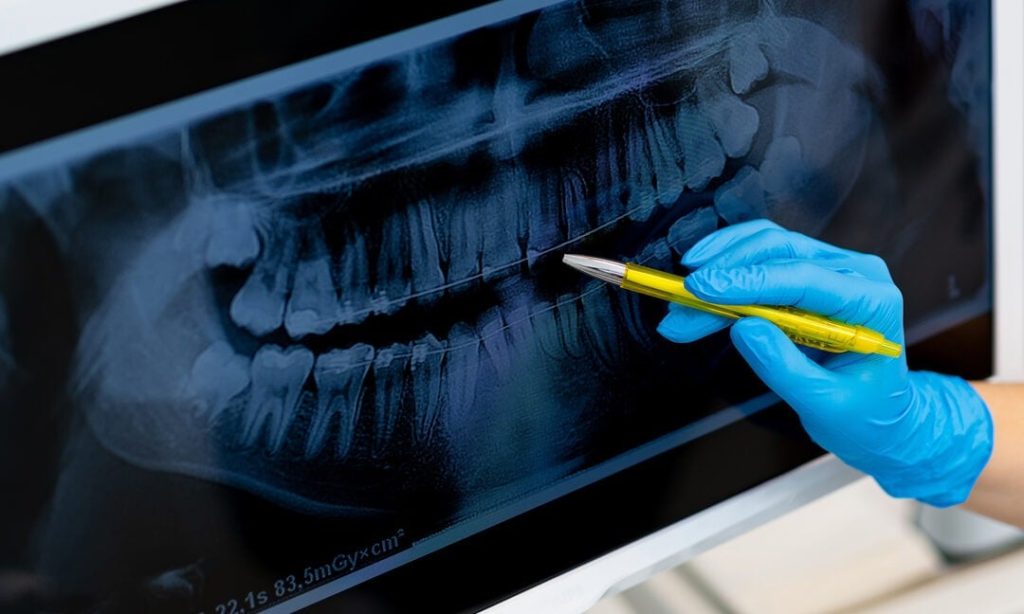Introduction
Maintaining healthy teeth and gums is essential not only for a beautiful smile but also for your overall health. Good oral hygiene habits can help prevent a variety of dental problems, including cavities, gum disease, and bad breath, and can even reduce the risk of conditions like heart disease and diabetes. While regular dental visits are crucial, much of the responsibility lies with the daily habits you develop. In this article, we’ll explore effective tips and practices to help you maintain optimal dental health and keep your smile shining for years to come.
1. Brush Your Teeth Properly
Why Brushing Is Essential
Brushing your teeth is the foundation of good oral hygiene. It helps remove food particles, plaque, and bacteria that can lead to cavities and gum disease. Proper brushing technique and frequency are essential for maintaining healthy teeth and gums.
Brushing Tips:
- Brush Twice a Day: Brush your teeth at least twice a day—once in the morning and once before bed. If possible, brush after meals to remove any food particles that may remain stuck between your teeth.
- Use the Right Toothbrush: Choose a toothbrush with soft bristles to avoid damaging your gums and enamel. Manual or electric toothbrushes are both effective, as long as you use the correct technique.
- Brush for Two Minutes: Spend at least two minutes brushing your teeth to ensure you clean all surfaces. Divide your mouth into quadrants and spend 30 seconds on each area.
- Use Fluoride Toothpaste: Fluoride strengthens enamel and helps prevent cavities. Always use toothpaste that contains fluoride, as it helps fight tooth decay.
- Proper Technique: Hold your toothbrush at a 45-degree angle to your gums, and use gentle circular motions. Avoid harsh scrubbing, which can irritate your gums and wear down your enamel.
2. Floss Daily
Why Flossing Is Crucial
Flossing removes plaque and food particles from areas between your teeth that your toothbrush can’t reach. Skipping flossing can lead to the buildup of plaque, which can turn into tartar, leading to cavities and gum disease.
Flossing Tips:
- Do It Daily: Floss at least once a day, preferably before bed. Flossing at night ensures that you remove any trapped food and bacteria that can cause plaque buildup while you sleep.
- Be Gentle: Slide the floss gently between your teeth, curving it around each tooth in a “C” shape. Avoid snapping the floss into your gums, as this can cause irritation.
- Use Enough Floss: Use about 18 inches of floss, wrapping the ends around your fingers. This allows you to use a fresh section of floss for each tooth, avoiding transferring bacteria.
3. Rinse with Mouthwash
Why Mouthwash Is Beneficial
Mouthwash can help reduce bacteria in your mouth, freshen your breath, and provide additional protection against cavities and gum disease. Some mouthwashes contain fluoride, which can help remineralize enamel, while others have antibacterial agents that can reduce plaque buildup.
Mouthwash Tips:
- Use After Brushing and Flossing: Mouthwash should be used as a supplement to brushing and flossing, not as a replacement. Rinse for about 30 seconds to one minute for optimal results.
- Choose the Right Type: If you’re dealing with gum issues, look for an antibacterial mouthwash with ingredients like chlorhexidine. If you’re prone to cavities, choose a fluoride-based mouthwash.
- Avoid Alcohol-Based Mouthwashes: Alcohol can dry out your mouth, which reduces the amount of saliva available to protect your teeth. Opt for alcohol-free mouthwashes if you have a dry mouth.
4. Eat a Balanced Diet
Why Your Diet Matters for Oral Health
What you eat plays a significant role in the health of your teeth and gums. A balanced diet helps provide the essential nutrients needed for strong teeth and healthy gums, while sugary and acidic foods can lead to tooth decay and gum disease.
Diet Tips for Healthy Teeth and Gums:
- Limit Sugary and Acidic Foods: Sugar feeds the bacteria in your mouth that produce acids, which break down enamel and lead to cavities. Acidic foods and drinks like citrus, soda, and coffee can erode enamel over time.
- Eat Plenty of Calcium-Rich Foods: Calcium is crucial for strong teeth. Include dairy products, leafy greens, almonds, and fortified plant-based milks in your diet to maintain healthy teeth.
- Incorporate Vitamin C: Vitamin C helps maintain healthy gums and prevents gum disease. Citrus fruits, strawberries, peppers, and broccoli are excellent sources of this important vitamin.
- Drink Water: Drinking water helps wash away food particles and bacteria, keeping your mouth clean and hydrated. Water also supports saliva production, which helps neutralize acids and protect your teeth.
- Chew Sugar-Free Gum: Chewing sugar-free gum after meals can help stimulate saliva production, which neutralizes acids and helps keep your mouth clean.
5. Visit the Dentist Regularly
Why Dental Checkups Are Essential
Regular dental visits are crucial for maintaining optimal oral health. Your dentist can identify issues that may not be visible or detectable at home, such as cavities, gum disease, or early signs of oral cancer.
Dental Checkup Tips:
- Schedule Twice-Yearly Appointments: Most dentists recommend seeing a dentist every six months for a routine cleaning and examination. This allows your dentist to monitor your oral health and catch problems early.
- Ask Questions: If you have concerns about your oral hygiene or notice any issues (like bleeding gums or tooth sensitivity), ask your dentist for advice on how to improve your oral health.
- Get Cleanings and X-Rays: During your visit, your dentist will clean your teeth to remove tartar buildup that regular brushing and flossing can’t tackle. They may also take X-rays to look for hidden cavities or other dental issues.
6. Don’t Smoke or Use Tobacco Products
Why Smoking and Tobacco Are Harmful
Tobacco use is one of the leading causes of gum disease, tooth loss, and oral cancer. Smoking reduces blood flow to the gums, making it more difficult for your gums to heal and fight infections. It also causes bad breath and stains your teeth.
Tobacco-Related Health Tips:
- Quit Smoking: Quitting smoking can significantly improve your gum health and reduce your risk of gum disease, oral cancer, and tooth loss. Consider seeking help through smoking cessation programs or medications.
- Avoid Smokeless Tobacco: Smokeless tobacco products like chewing tobacco can cause gum recession, tooth decay, and oral cancer. The best choice for your oral health is to avoid tobacco entirely.

7. Protect Your Teeth During Sports
Why Protection Is Necessary
If you play contact sports, your teeth are at risk of injury from falls, collisions, or impacts. Wearing a mouthguard can help prevent chipped, broken, or knocked-out teeth.
Sports Protection Tips:
- Wear a Mouthguard: A custom-fitted mouthguard from your dentist offers the best protection. It absorbs impacts and prevents damage to your teeth and gums during physical activities.
- Avoid Chewing Hard Objects: Don’t chew on hard objects like pens, ice, or your nails, as they can cause your teeth to crack or chip.
8. Manage Stress to Prevent Teeth Grinding
Why Stress Can Impact Oral Health
Stress can cause people to grind or clench their teeth, especially during sleep. This condition, known as bruxism, can lead to tooth wear, jaw pain, and headaches.
Stress Management Tips:
- Practice Relaxation Techniques: Yoga, meditation, deep breathing, and other relaxation exercises can help reduce stress and minimize the likelihood of grinding your teeth.
- Use a Nightguard: If you grind your teeth at night, a custom nightguard can protect your teeth from excessive wear and relieve pressure on your jaw.
Conclusion
Achieving and maintaining optimal dental health requires consistent effort and the right habits. By brushing and flossing regularly, eating a balanced diet, visiting the dentist for routine checkups, and avoiding harmful habits like smoking, you can protect your teeth and gums for life. It’s essential to think of your oral health as an investment in your overall well-being. A healthy mouth not only gives you a confident smile, but it also contributes to better overall health, reducing your risk of systemic conditions such as heart disease and diabetes.
By following these simple steps, you can maintain a lifetime of healthy teeth and gums, keeping your smile bright and your mouth in top condition.













































Discussion about this post